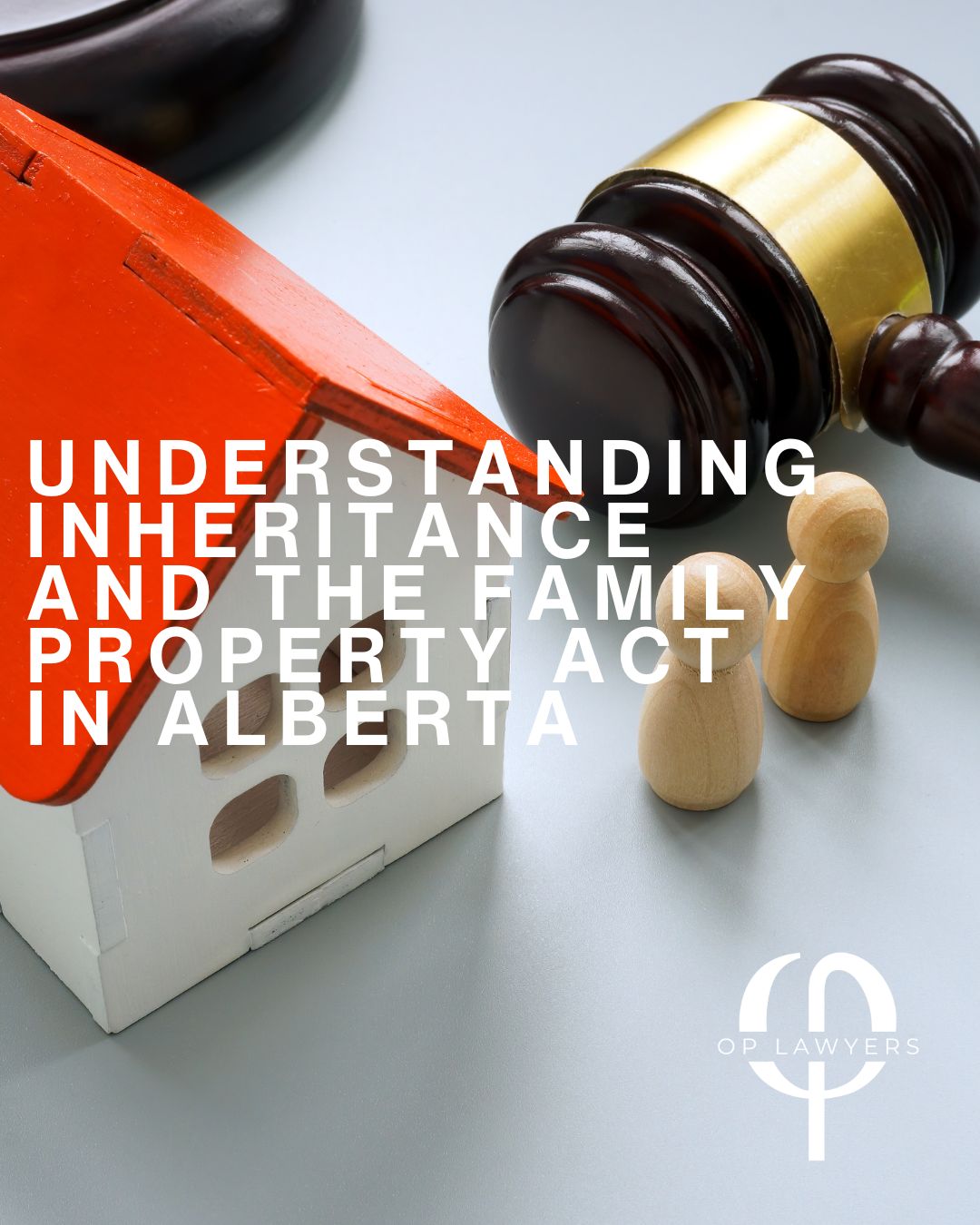At OP Lawyers LLP, we know that navigating the complexities of property division during a separation or divorce can be overwhelming. One area that often raises questions is the treatment of inheritance under Alberta’s Family Property Act (FPA). Understanding these nuances can help you protect your interests.
What is the Family Property Act?
The Family Property Act in Alberta governs to rules of property distribution between married and adult interdependent partners. FPA outlines what takes place when a couple separates and how their property is to be divided.
How is inheritance treated?
A key point to remember is that inheritance received by one spouse or Adult Interdependent Partner during the relationship is usually exempt from division under the FPA. This means that if you inherit assets, they typically remain yours and are not split with your partner in the event of a separation. This provision exists to honor the intent behind inheritances—these gifts are meant for you, not your partner. However, it is important to understand that this rule applies so long as you do not mix the inheritance with other assets owned during the relationship that are in joint names. If you use proceeds of inheritance to purchase a property or asset under joint names, then you will lose part of the exemption on that inheritance.
Our top family lawyers in Calgary understand the complexities of inheritance and how you can protect your assets without risking division. Contact one of our Calgary family lawyers to ask questions you may have about inheritance.
When a court determines whether a property is divisible between couples separating, they will look at several factors under s.7(1) of the Family Property Act as follows:
(a) property acquired by a spouse or adult interdependent partner by gift from a third party,
(b) property acquired by a spouse or adult interdependent partner by inheritance,
(c) property acquired by a spouse before the marriage, in the case of spouses who were not in a relationship of interdependence with each other immediately before the marriage,
(c.1) property acquired by a spouse before the relationship of interdependence began, in the case of spouses who were in a relationship of interdependence with each other immediately before the marriage,
(c.2) property acquired by an adult interdependent partner before the relationship of interdependence began,
(d) an award or settlement for damages in tort in favour of a spouse or adult interdependent partner, unless the award or settlement is compensation for a loss to both spouses or adult interdependent partners, or
(e) the proceeds of an insurance policy that is not insurance in respect of property, unless the proceeds are compensation for a loss to both spouses or adult interdependent partners,
If your property is determined to fall under one of the categories above, it is presumed to be exempt from division provided that you have not mixed it into other family property or can trace it to the original source. Tracing becomes an essential part of exempt property. You will have to demonstrate to the court that the original exempt asset not only still exists today, but that it is held separately from other family assets so that it remains fully exempt. Our family lawyers at OP Lawyers LLP can give you advice and guidance on how you can protect exempt property and what you should do in case of a separation to be able to prove that the exemption remains.
In a situation where you mix exempt property with family assets, there is a presumption that you lose ½ of the exemption. I.e. if you’ve received $100,000 from inheritance and use the proceed to purchase a home in joint names, you lose ½ of the exemption such that $50,000 remains exempt and the other $50,000 is divisible as family property.
Conclusion
If you are facing a situation involving inheritance and property division, our top family lawyers at OP Lawyers LLP in Calgary are here to guide you. We can help ensure that your rights are protected and that you understand the implications of your circumstances.
Disclaimer: This blog post is intended for informational purposes only and does not constitute legal advice. For advice specific to your circumstances, please consult a qualified family lawyer at OP Lawyers LLP or another legal professional.
